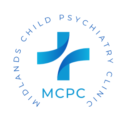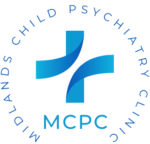- Awesome Services
Depression in Young People
- Depression in Young People
Explore How Can We Help You

Depression
Depression in young people, including children and adolescents, is a serious mental health condition characterized by persistent feelings of sadness, hopelessness, and a lack of interest or pleasure in activities. It can affect their lives, including academic performance, social interactions, and overall well-being. Here are vital aspects to consider regarding depression in young people:
Symptoms:
- Emotional Symptoms: Persistent sadness, irritability, feelings of worthlessness, guilt, or hopelessness.
- Behavioral Changes: Loss of interest in activities once enjoyed, changes in appetite and sleep patterns, withdrawal from friends and family, and a decline in academic performance.
- Physical Symptoms: Fatigue, headaches, stomach aches, and weight changes.
Risk Factors:
- Genetic Factors: A family history of depression or other mood disorders can increase the risk.
- Biological Factors: Imbalances in brain chemicals (neurotransmitters) may contribute.
- Environmental Factors: Stressful life events, trauma, abuse, or ongoing exposure to adversity.
- Chronic Illness: Some physical health conditions can be associated with an increased risk of depression.
Unique Aspects in Young People:
- Expression of Symptoms: Children and adolescents may not always express their feelings verbally. Instead, they might exhibit changes in behavior, irritability, or physical complaints.
- Co-occurring Disorders: Depression often coexists with other mental health conditions, such as anxiety or substance abuse.
- Impact on Developmental Milestones: Depression can hinder social, academic, and emotional development.
Treatment and Support:
- Psychotherapy: Cognitive-behavioral therapy (CBT), interpersonal therapy (IPT), or other evidence-based therapeutic approaches can be effective.
- Medication: In severe cases, antidepressant medication may be considered under the supervision of a healthcare professional.
- Supportive Environment: Family, friends, and school personnel play crucial roles in providing emotional support and creating a supportive environment.
- Early Intervention: Early recognition and intervention are essential to prevent the long-term impact of depression.
Prevention and Awareness:
- Promote Mental Health: Encourage open conversations about mental health, reduce stigma, and promote emotional well-being.
- Educate: Raise awareness about the signs of depression and the importance of seeking help.
- Build Resilience: Help young people develop coping skills and resilience to navigate challenges.
If you suspect that a young person is experiencing depression, it is crucial to seek professional help. Mental health professionals, including psychologists, psychiatrists, or counselors, can provide appropriate assessment and intervention. Additionally, involving parents, teachers, and other support systems is vital in creating a comprehensive and practical approach to managing depression in young people.
Complex Trauma in Early Years
Complex trauma refers to exposure to prolonged, severe, and often interpersonal trauma, typically occurring early in life. This type of trauma can have profound and lasting effects on the physical, emotional, and psychological well-being of young people. Complex trauma is often characterized by multiple traumatic experiences that are chronic and interpersonal and occur within relationships where the child or adolescent should expect protection and care. Here are key aspects to consider regarding complex trauma in young people:
- Types of Trauma:
- Abuse and Neglect: Physical, emotional, or sexual abuse; neglect of basic needs.
- Domestic Violence: Exposure to violence between caregivers or within the family.
- Community Violence: Exposure to violence in the community or neighborhood.
- Separation or Loss: Loss of a caregiver or separation from a primary attachment figure.
- Bullying
- Developmental Impact:
- Complex trauma can disrupt normal development, affecting cognitive, emotional, and social milestones.
- The developing brain may be particularly vulnerable to the impact of chronic stress and trauma.
- Attachment and Relationship Difficulties:
- Early trauma can affect the formation of secure attachments, leading to difficulties in forming and maintaining relationships.
- Trust issues and challenges in forming healthy connections with others may arise.
- Emotional Dysregulation:
- Difficulty in regulating emotions, leading to intense mood swings, impulsivity, and emotional outbursts.
- Some young people may engage in self-destructive behaviors as a way to cope with overwhelming emotions.
- Coping Mechanisms:
- The development of adaptive and maladaptive coping mechanisms, such as dissociation, self-harm, substance abuse, or risky behaviors.
- Young people may employ strategies to numb or avoid emotional pain.
- Impact on Identity:
- Complex trauma can shape a young person's sense of self and identity.
- Challenges in developing a positive self-concept and self-esteem may arise.
- Educational Challenges:
- Trauma can interfere with cognitive functioning and attention, leading to difficulties in academic performance.
- School avoidance or behavioral problems in the educational setting may occur.
- Risk of Revictimization:
- Individuals who have experienced complex trauma may be at a higher risk of revictimization in adolescence or adulthood.
- Patterns of engaging in relationships that replicate the dynamics of earlier trauma may emerge.
- Mental Health Consequences:
- Increased vulnerability to mental health conditions, including post-traumatic stress disorder (PTSD), depression, anxiety, and other mood disorders.
Intervention and Support:
- Trauma-Informed Care: Approaches that recognize and respond to the impact of trauma on individuals.
- Therapeutic Interventions: Trauma-focused therapies, such as Trauma-Focused Cognitive Behavioral Therapy (TF-CBT) or Eye Movement Desensitization and Reprocessing (EMDR).
- Supportive Relationships: Positive and stable relationships with caregivers, mentors, or other supportive figures can be crucial for healing.
- Education and Advocacy: Raising awareness about the impact of complex trauma and advocating for trauma-informed practices in various settings.
Understanding the complexity of trauma in young people and providing appropriate interventions is essential for promoting healing and resilience. Professionals working with young individuals who have experienced complex trauma should employ trauma-informed and evidence-based approaches to address the unique needs of these individuals.
Parental Mental Health & Impact on Young People
Parental mental health plays a significant role in the well-being and development of young people. Caregivers' mental health can impact various aspects of a child's life, including emotional, social, and cognitive development. Here are key considerations regarding the impact of parental mental health on young people:
- Attachment and Bonding:
- Parental mental health can influence the quality of attachment and bonding between caregivers and children.
- Mental health challenges may affect a parent's ability to respond to a child's emotional needs and provide consistent support.
- Emotional Well-Being:
- Parents experiencing mental health difficulties may struggle with mood regulation, affecting the emotional climate within the family.
- Children may absorb and internalize their parents' emotional states, impacting their own emotional well-being.
- Role Modelling:
- Parents serve as role models for their children. Observing how parents cope with stress, manage emotions, and handle challenges can influence a child's own coping strategies.
- Positive parental mental health can contribute to the development of healthy coping mechanisms in children.
- Parenting Style:
- Mental health conditions may influence parenting styles. For example, depression may lead to withdrawn or less responsive parenting, while anxiety may result in overprotective behaviors.
- The consistency and predictability of parenting can be affected, influencing a child's sense of safety and security.
- Cognitive Development:
- A parent's mental health can impact a child's cognitive development, including language acquisition, problem-solving skills, and academic performance.
- Consistent and positive interactions with mentally healthy caregivers contribute to a nurturing learning environment.
- Risk of Mental Health Challenges:
- Children of parents with mental health conditions may be at an increased risk of developing mental health challenges themselves.
- Genetic and environmental factors can contribute to the intergenerational transmission of mental health difficulties.
- Social Relationships:
- Parental mental health can influence a child's ability to form and maintain healthy social relationships.
- The social and emotional skills children learn within the family context contribute to their interactions outside the home.
- Coping with Stress:
- Parents with good mental health are better equipped to handle stressors, providing a more stable and supportive environment for their children.
- Children learn effective stress-coping mechanisms by observing and interacting with their caregivers.
- Treatment and Support:
- Access to mental health treatment and support for parents is crucial. Effective treatment can positively impact parental functioning and, consequently, the family environment.
- Supportive interventions that address both parental and child needs contribute to overall family well-being.
- Stigma and Shame:
- Stigma and shame associated with mental health challenges may affect the family dynamic. Open communication and reducing stigma contribute to a healthier family environment.
Addressing parental mental health is not only essential for the well-being of the parents but also crucial for creating a nurturing and supportive environment for the children. Early intervention, access to mental health services, and a comprehensive family-centered approach are key to promoting positive outcomes for parents and young people.
Parental Separation & Impact on Children
Parental separation or divorce is a significant life event that can have a profound impact on children. The effects can vary depending on various factors, including the age of the child, the level of conflict between parents, and the support systems in place. Here are some key considerations regarding the impact of parental separation on children:
- Emotional Distress:
- Children may experience a range of emotions, including sadness, anger, confusion, anxiety, and grief, in response to their parents' separation.
- Emotional distress may manifest through changes in behavior, sleep disturbances, or academic difficulties.
- Adjustment Challenges:
- The adjustment to a new family structure can be challenging for children. Changes in living arrangements, routines, and relationships may require time to adapt.
- Younger children may have difficulty understanding the reasons behind the separation.
- Changes in Behavior:
- Some children may exhibit changes in behavior, such as acting out, regressing to earlier developmental stages, or withdrawing.
- Behavioral changes can be expressions of emotional distress or attempts to cope with the new situation.
- Impact on Academic Performance:
- Parental separation can sometimes affect a child's academic performance. Emotional stress and changes in the family environment may contribute to difficulties in concentration and learning.
- Relationship with Parents:
- Children may experience shifts in their relationships with each parent. Maintaining positive and supportive connections with both parents is essential for a child's well-being.
- Parental conflict during and after separation can influence the quality of parent-child relationships.
- Coping Mechanisms:
- Children develop various coping mechanisms to deal with the emotional challenges of parental separation. This can include seeking support from friends, engaging in activities, or expressing emotions through creative outlets.
- Long-Term Effects:
- While many children adapt well to parental separation, some may experience long-term effects, especially if the separation is accompanied by ongoing conflict, parental alienation, or other stressors.
- Parental separation does not necessarily predict negative outcomes, and many children thrive in well-supported post-separation environments.
- Co-Parenting Dynamics:
- The nature of the co-parenting relationship can significantly impact children. Positive and cooperative co-parenting helps create a stable and supportive environment for children to thrive.
- Communication and Reassurance:
- Open and age-appropriate communication about the separation can help children understand the situation and express their feelings.
- Reassurance and consistency in both parents' involvement and support are crucial for maintaining a sense of security.
- Professional Support:
- In some cases, children may benefit from professional support, such as counseling or therapy, to help them navigate the emotional challenges of parental separation.
It's important to note that each child's response to parental separation is unique, and some may adapt more easily than others. Providing a supportive and understanding environment, maintaining consistent routines, and fostering positive co-parenting relationships contribute to helping children navigate the changes associated with parental separation.

